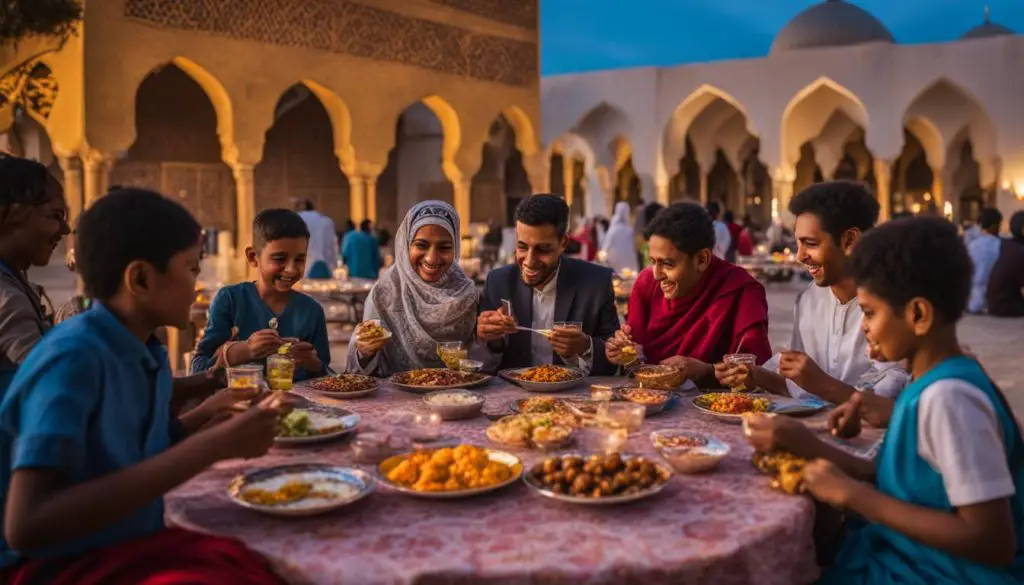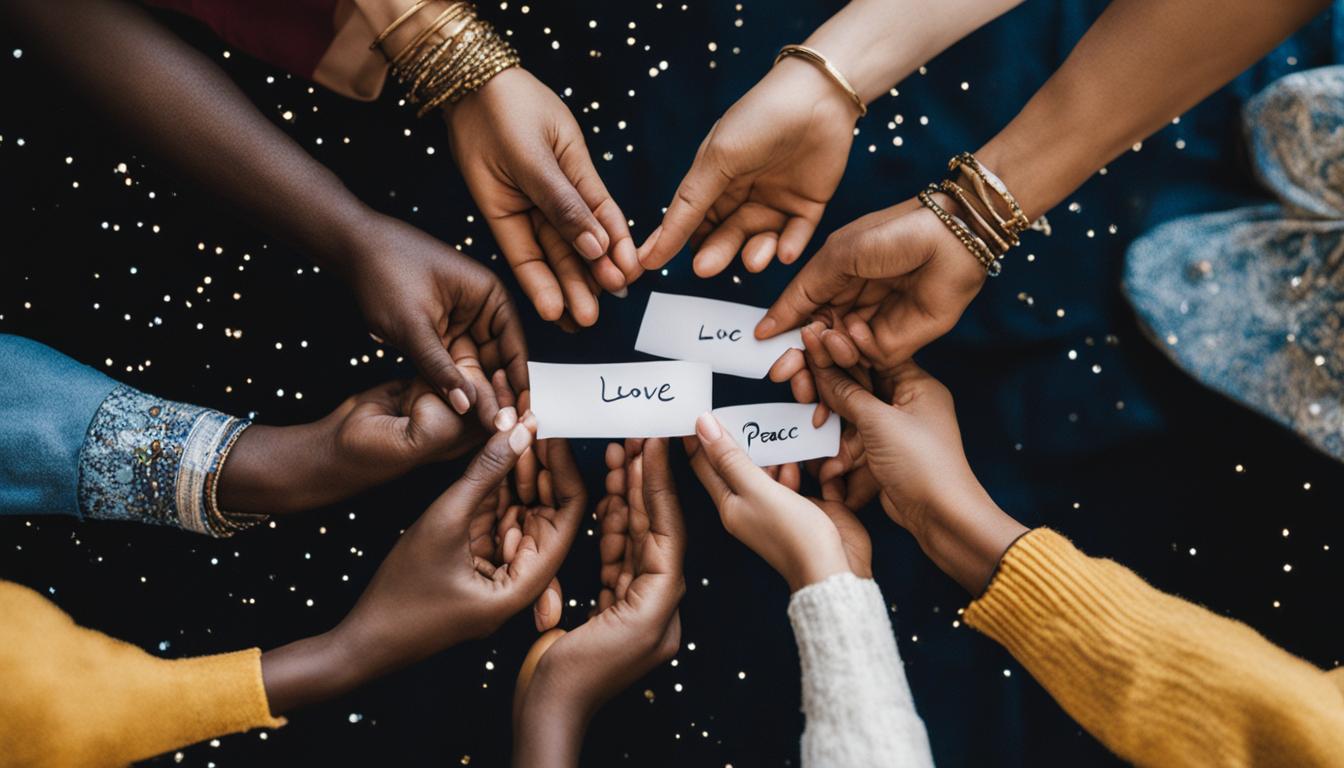Ramadan is a holy month for Muslims, where they observe fasting and engage in spiritual practices. It is important to understand the customs during Ramadan and learn how to show support and solidarity to Muslim friends, colleagues, and neighbors. This article will explore the topic of wishing Muslims good luck on Ramadan fasting and provide insights on appropriate greetings and gestures to express solidarity.
Contents
- 1 What is Ramadan and How Do Muslims Fast?
- 2 The Significance of Ramadan and the Cultural Practices
- 3 How to Wish Muslims Good Luck on Ramadan Fasting
- 4 Conclusion
- 5 FAQ
- 5.1 Do you wish Muslims good luck on Ramadan fasting?
- 5.2 What is Ramadan and how do Muslims fast?
- 5.3 What is the significance of Ramadan and the cultural practices?
- 5.4 How can I wish Muslims good luck on Ramadan fasting?
- 5.5 How can I support Muslims during Ramadan?
- 5.6 Why is it important to show support and solidarity to Muslims during Ramadan?
- 6 Source Links
Key Takeaways:
- Wishing Muslims good luck on Ramadan fasting is a way to show support and solidarity.
- Common greetings include “Ramadan Mubarak” and “Ramadan Kareem”.
- Understanding and respecting fasting practices can be a meaningful gesture.
- Engaging in friendly conversations about Ramadan traditions can foster inclusivity.
- Offering assistance and joining Muslims for Iftar can show solidarity.
What is Ramadan and How Do Muslims Fast?
Ramadan is the ninth month of the Islamic calendar and is observed by Muslims worldwide. It is a time of spiritual devotion, self-reflection, and increased acts of worship. The primary practice during Ramadan is fasting, known as “Sawm,” which holds great significance for Muslims.
During the month of Ramadan, Muslims abstain from food, drink, and other physical needs from dawn until sunset. This fasting process is seen as a way to purify the soul, practice self-discipline, and empathize with those who are less fortunate. Muslims also engage in increased prayer, recitation of the Quran, and acts of charity during this holy month.
The fasting day is typically broken with a meal called “Iftar,” which is shared with family and friends. Muslims gather together to break their fast at sunset and partake in a meal that often includes dates, water, and a variety of traditional dishes. This communal meal is an important part of the Ramadan experience, fostering unity and a sense of community among Muslims.
Table: The Pillars of Ramadan and Islamic Fasting
| Pillars of Ramadan | Description |
|---|---|
| Sawm (Fasting) | The act of abstaining from food, drink, and other physical needs from dawn until sunset. |
| Salah (Prayer) | Increased prayers, including Taraweeh prayers, which are performed after the evening Isha prayer. |
| Zakat (Charity) | Charitable giving, with Muslims encouraged to donate a portion of their wealth to those in need. |
| Sawm (Fasting) | The act of abstaining from food, drink, and other physical needs from dawn until sunset. |
| Sawm (Fasting) | The act of abstaining from food, drink, and other physical needs from dawn until sunset. |
Overall, Ramadan is a time of spiritual reflection, self-restraint, and increased devotion for Muslims. It is a month to deepen their connection with God, seek forgiveness, and demonstrate compassion towards others. The observance of fasting during Ramadan serves as a reminder of the importance of gratitude, empathy, and self-control in one’s spiritual journey.
The Significance of Ramadan and the Cultural Practices
Ramadan holds great significance for Muslims as it is believed to be the month when the Holy Quran was first revealed to Prophet Muhammad. It is a time of spiritual growth, self-reflection, and a chance for Muslims to strengthen their connection with God and their community.
During Ramadan, Muslims celebrate in various ways, such as engaging in increased prayer, Quranic reading, and reflection on one’s relationship with God. It is also a time for families and communities to come together for Iftar gatherings, where the fast is broken at sunset. These gatherings foster a sense of unity and solidarity among Muslims.
Decorating homes and preparing traditional foods are also common cultural practices during Ramadan. Muslims often adorn their homes with lights and lanterns, creating a festive atmosphere. Traditional dishes, such as dates, samosas, and biryanis, are enjoyed during Iftar, adding to the richness of the cultural experience.
The Cultural Practices during Ramadan
| Cultural Practices | Significance |
|---|---|
| Iftar Gatherings | Bringing families and communities together, fostering unity and solidarity |
| Decorating Homes | Creating a festive atmosphere, symbolizing the importance of the month |
| Preparing Traditional Foods | Enjoying cultural dishes, adding to the richness of the Ramadan experience |
By understanding and appreciating these cultural practices, we can better connect with Muslim friends, colleagues, and neighbors during Ramadan. It is an opportunity to learn from one another, celebrate diversity, and show support for their spiritual journey.
How to Wish Muslims Good Luck on Ramadan Fasting
When expressing your well wishes to Muslims during Ramadan fasting, there are a few common phrases you can use. “Ramadan Mubarak” means “Blessed Ramadan” and is a widely used greeting. Another phrase, “Ramadan Kareem,” translates to “Generous Ramadan” and is also commonly used. These greetings can be used to wish Muslims a blessed and fulfilling fasting month, and to show support and positivity towards their spiritual journey.
It is important to remember that the act of wishing Muslims good luck on their fasting does not necessarily imply that they need luck to complete their fast. Rather, it is a way to show solidarity and support for their commitment and dedication during this holy month. By using these greetings, you can send positive vibes and let Muslims know that you are aware of and respect their religious observances.
In addition to using these greetings, you can also express your support by offering words of encouragement and understanding. You can acknowledge the challenges of fasting and use phrases like, “May your fast be filled with spiritual growth and strength” or “Wishing you patience and peace during Ramadan.” These personalized messages show that you are aware of the significance of Ramadan and are sending well wishes tailored to the individual.
| Common Ramadan Greetings | Meaning |
|---|---|
| Ramadan Mubarak | Blessed Ramadan |
| Ramadan Kareem | Generous Ramadan |
“Wishing you a blessed and fulfilling month of Ramadan. May your fast be a time of reflection, renewal, and spiritual growth.”
By using these greetings and offering words of encouragement, you can show your respect and support for Muslims during Ramadan fasting. It is a meaningful way to connect with friends, neighbors, and colleagues and to foster a sense of inclusivity and understanding.

Conclusion
Ramadan is a significant time for Muslims, and you have the opportunity to show support and solidarity to them during this important period. By understanding the customs and practices of Ramadan, you can engage in thoughtful gestures, greetings, and acts of kindness to wish Muslims good luck on their fasting journey.
When you send positive vibes and well wishes to Muslims during Ramadan fasting, it creates a sense of positivity and inclusivity. Using phrases like “Ramadan Mubarak” and “Ramadan Kareem” allows you to express your blessings and goodwill towards their fasting month. These greetings not only show support but also demonstrate your respect for their spiritual journey.
It’s important to be mindful and understanding of their fasting practices during Ramadan. Avoid eating or drinking in front of them during fasting hours and take the time to learn about their customs and traditions associated with this holy month. Engaging in friendly conversations about the significance of Ramadan can help foster a sense of connection and understanding.
Additionally, offering your assistance and support can go a long way in showing solidarity. Whether it’s helping with tasks or joining them for Iftar, your acts of kindness will be greatly appreciated. Let us come together to spread positivity, inclusivity, and support during Ramadan, and wish Muslims good luck on their fasting journey.
FAQ
Do you wish Muslims good luck on Ramadan fasting?
It is appropriate and thoughtful to express your well wishes to Muslims during Ramadan fasting. Using greetings like “Ramadan Mubarak” or “Ramadan Kareem” can convey your support and positivity towards their spiritual journey.
What is Ramadan and how do Muslims fast?
Ramadan is the ninth month of the Islamic calendar, and it is observed by Muslims worldwide. During this time, they engage in fasting from dawn to sunset, abstaining from food, drink, and other physical needs as a way to demonstrate self-discipline, patience, and empathy.
What is the significance of Ramadan and the cultural practices?
Ramadan is believed to be the month when the Holy Quran was first revealed to Prophet Muhammad. Muslims celebrate Ramadan through various practices, including Iftar gatherings, decorating their homes, and preparing traditional foods. It is a time of spiritual growth, self-reflection, and strengthening of community bonds.
How can I wish Muslims good luck on Ramadan fasting?
You can use greetings like “Ramadan Mubarak” or “Ramadan Kareem” to wish Muslims a blessed and fulfilling fasting month. Learning about their customs and traditions associated with Ramadan and engaging in friendly conversations about the significance of the month can also be meaningful gestures.
How can I support Muslims during Ramadan?
One way to show solidarity with Muslims during Ramadan is by being understanding and respectful of their fasting practices, such as avoiding eating or drinking in front of them during fasting hours. Offering assistance and support, such as helping with tasks or joining them for Iftar, can also be meaningful gestures.
Why is it important to show support and solidarity to Muslims during Ramadan?
Ramadan is a significant time for Muslims, and showing support and solidarity to them during this period is important. By understanding their customs and practices, we can engage in thoughtful gestures, greetings, and acts of kindness. Your support will be greatly appreciated and can help foster inclusivity and positivity during Ramadan.





